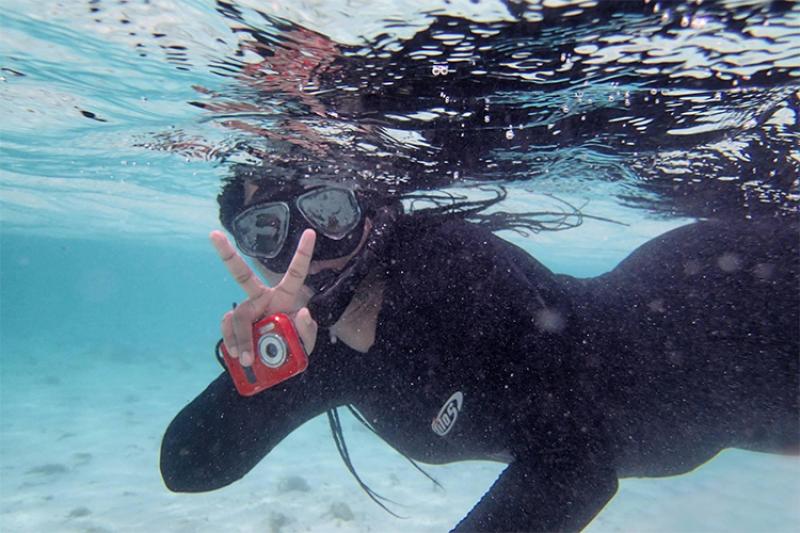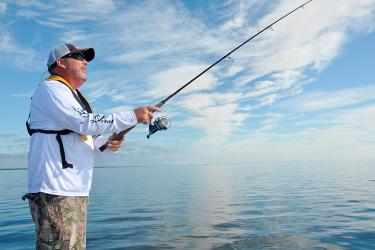Gabrielle Clardy is the groundfish program assistant area lead for the Northeast Fisheries Science Center’s Fisheries Monitoring and Operations Branch. Much of her work focuses on planning, coordinating, and executing at-sea monitoring coverage in the Northeast by working with sector managers and fishery monitoring service provider companies. Her home base is at our Tech Park facility in Falmouth, Massachusetts.
Can you tell us a little about yourself—where you grew up, how you got interested in science, where you went to college?
I grew up outside of Washington D.C. in Northern Virginia. I remember in fourth grade we had a career day. Everyone said they wanted to be the president, a doctor, or a celebrity. I said I want to open my own Jurassic Park and swim with Jaws. After some laughs and talks with my teacher and mom, I decided what I really wanted to do was to become a marine biologist. My mother didn’t know much about marine biology—most of her family are in medicine or are entrepreneurs. She tried her hardest to find opportunities for me, but growing up outside D.C. made it hard.
When it came time for college, I struggled. Colleges close to home didn’t have marine science courses or programs. I started to feel defeated, embarrassed. I talked with one of the science teachers at my high school about this and he suggested I look at schools in Virginia’s tidewater area. That advice led me to Old Dominion University in Norfolk, Virginia. It changed my life.
While earning my bachelor’s degree in biology, I joined the Marine Biology Student Association. That gave me the opportunity to earn my open–water diving certification through the Academic Diving Program.
One of the program’s staff members led a study abroad program in South Water Caye, Belize. After talking with them and other students about the study abroad program, I knew it was going to be a great opportunity for me. It was my first hands-on experience with marine life in a scientific setting with like-minded people. The local reefs were our classrooms where we learned how to identify marine life and study their biology and ecology. This led to working on barracuda predation for my senior project. This study abroad program was life changing and fueled my passion for marine science.
After graduating, I interned in one of the University labs that collected harmful algae bloom samples for the Virginia Department of Environmental Quality. I then became a fisheries observer in the Southeast, working on longline fishing vessels observing for large pelagic species. I then became a protected species observer, a dockside interviewer, and a large pelagic surveys sampler.
I wanted to take the next step in my career. I knew I wanted to work for a state or federal agency to help bridge that gap between industry and field scientists, but wasn’t sure where to start. So, I floated my resume around while searching for graduate degree programs. Right after I was accepted into a marine policy graduate program, I was offered a job as a groundfish assistant lead with our science center's observer program. I accepted the position, beginning the next chapter of my career.
What do you love most about your job and/or your career?
I’ve really come to love the people I work with—both my colleagues and those in the industry! There is so much to learn from one another. Every day brings new challenges and opportunities. For the first time in my professional career, I finally have the teamwork atmosphere I’ve always craved. Everyone applies their experiences and expertise while working towards the same goal. They inspire me to succeed every day!
Could you share an example of a hurdle or obstacle you experienced during your science journey? How did you overcome it?
Until now, the greatest obstacle I’ve had to overcome was not being heard and supported. I often had to curb my enthusiasm for fisheries when it conflicted with other people’s negative perspectives. Having been an observer, I know the challenges. I found myself in a position where I thought I could make a difference. I wanted to help solve some of the challenges associated with industry, observers, and the companies that contract observers. I’m very ambitious and hardworking so I surrounded myself with like-minded people, did my due diligence, asked tough questions, and reminded myself why I was an observer—to be of service to our environment. I’m happy that I’m now in a position that actively works toward that.
What advice do you have for the next generation of women scientists about a career in fisheries and/or marine science?
Always keep your eyes on your goals. Remember, life is a journey meant to be explored. Your career path may not always be linear and that’s OK. Having an amazing support system of friends, family, and mentors made my career journey worth it. Networking may be scary, but remember everyone comes from different walks of life. You’d be surprised how many people share the same goals, passions, fears, and interests. Make sure to take all moments along your journey as an opportunity to learn and fuel your passions.
For more information, please contact Heather Soulen.






